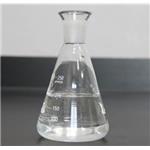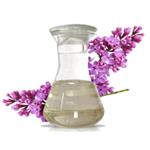Eugenol: Overview and its Biological Activities
May 15,2024
General Description
Eugenol, isolated from clove oil, is a versatile compound with potent antioxidant and antimicrobial properties. It scavenges free radicals, reduces oxidative stress, and inhibits ROS production, but caution is needed at high concentrations to avoid pro-oxidative effects. In terms of antimicrobial activity, eugenol disrupts bacterial membranes, inhibits crucial enzymes, and induces reactive oxygen species production, leading to cell death. Derivatives of eugenol show even stronger antimicrobial potential. Further research and development of eugenol-based antimicrobial agents hold promise for diverse applications in medicine and beyond.

Figure 1. Eugenol
Overview
Eugenol, first isolated in 1929 from Eugenia caryophyllata, has since garnered significant attention and has been extensively studied. Commercial production commenced in the USA in 1940. This compound boasts diverse properties, leading to its wide-ranging applications across various sectors. In recent years, there has been a surge of interest in natural ingredients for unconventional and traditional medicines, positioning eugenol as a key focus of scientific research. It is being explored as a potential component in medicinal products, including those targeted for the treatment of human lung cancer. Moreover, derivatives of isoeugenol have gained popularity due to their potent fungicidal and insecticidal properties, surpassing eugenol in antimicrobial activity. Research in this field continues to advance, with studies delving into the multifaceted actions and applications of eugenol and its derivatives. 1
Biological Activities
Antioxidant Activity
Eugenol, a key compound found in clove oil, is widely recognized for its potent antioxidant activity. Its antioxidant properties stem from its ability to scavenge free radicals and inhibit the production of reactive oxygen species (ROS). By doing so, eugenol reduces oxidative stress and helps protect cells from damage. The antioxidant mechanisms of eugenol include the prevention of nitrogen-based reactive species formation, an increase in cellular antioxidant potential, and the safeguarding of microbial DNA and proteins. Its structural characteristic, which allows it to stabilize phenoxy radicals by accepting hydrogen atoms, contributes to its potent antioxidant capability. Studies have demonstrated that eugenol exhibits robust radical-scavenging activity. For example, its half-maximal inhibitory concentration (IC50) in DPPH (2,2-diphenyl-1-picrylhydrazyl) radical scavenging tests was 11.7 μg/mL, indicating strong antioxidant potential. Eugenol also inhibits ROS production in human neutrophils when stimulated by different compounds, with IC50 values of 1.6 μg/mL for phorbol 12-myristate 13-acetate and 27.1 μg/mL for hydrogen peroxide. While eugenol's antioxidant activity is beneficial at low doses, caution is needed with higher concentrations, as it can exhibit pro-oxidative effects. At these elevated levels, the formation of free radicals can occur, potentially leading to oxidative damage. Additionally, high concentrations of clove oil, which contains eugenol, have been associated with increased DNA breaks in normal human fibroblast cells. This duality underscores the importance of careful dosing to harness the antioxidant benefits while minimizing potential risks. 2
Antimicrobial Activity
Eugenol exhibits remarkable antimicrobial activity against various bacterial species, including Staphylococcus aureus, Pseudomonas aeruginosa, and Escherichia coli. This potency is largely attributed to the presence of a free hydroxyl group (-OH) within its chemical structure. Against Gram-negative bacteria, such as Escherichia coli, eugenol functions by disrupting the integrity of the cytoplasmic membrane. Due to its hydrophobic nature, eugenol can readily traverse the lipopolysaccharide cell membrane, leading to alterations in the cell's structural integrity and subsequent leakage of intracellular components. Moreover, eugenol exhibits inhibitory effects on various enzymes crucial for bacterial survival. In Enterobacter aerogenes, the hydroxyl group of eugenol hampers the activity of protease, histidine carboxylase, and amylase enzymes by binding to them. Similarly, eugenol interferes with the functioning of membrane-bound ATPase in bacteria like Escherichia coli and Listeria monocytogenes. Additionally, it demonstrates synergistic effects when combined with conventional antimicrobial agents. Furthermore, eugenol has been shown to induce the production of intracellular reactive oxygen species (ROS) within bacterial cells, leading to cell death through mechanisms such as inhibition of cell growth, disruption of the cell membrane, and damage to DNA. Interestingly, derivatives of eugenol have been observed to possess even greater antimicrobial potential than eugenol itself. These derivatives, formed through esterification or addition of functional groups to the allyl group, exhibit lower minimum inhibitory concentrations (MIC) against bacteria, highlighting the potential for further exploration and development of eugenol-based antimicrobial agents. 2
Reference
1. Marchese A, Barbieri R, Coppo E, et al. Antimicrobial activity of eugenol and essential oils containing eugenol: A mechanistic viewpoint. Crit Rev Microbiol. 2017; 43(6): 668-689.
2. Ulanowska M, Olas B. Biological Properties and Prospects for the Application of Eugenol-A Review. Int J Mol Sci. 2021; 22(7): 3671.
- Related articles
- Related Qustion
- Application and Pharmacology of Eugenol Jun 30, 2022
Eugenol is a phenylpropane compound existing in Syringa plants. It is a liquid with lilac flower flavor. Its chemical name is 4-allyl-2-methoxyphenol. Eugenol is the main bioactive compound of Syringa
- Introduction of eugenol Jan 14, 2022
Eugenol (C10H12O2) (CAS No:?97-53-0) is a volatile phenolic constituent of clove essential oil obtained from Eugenia caryophyllata buds and leaves.
Triethylene glycol (TEG) has been used for natural gas dehydration, as a humectant, solvent, and chemical intermediate in synthesizing resins, plasticizers, lubricants, and polyurethanes.....
May 14,2024Organic reagentsD-Sorbitol's synthesis, metabolism, and degradation impact plant osmotic regulation, stress responses, and fruit quality, crucial for crop enhancement via genetic engineering.....
May 15,2024API






